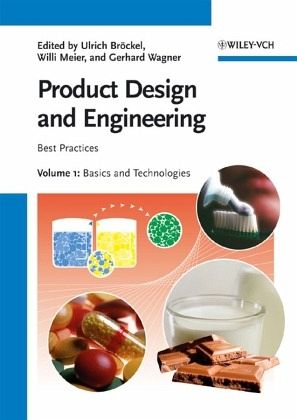Nicht lieferbar

Product Design and Engineering: Best Practices, 2 Vols.
Versandkostenfrei!
Nicht lieferbar
Covering the whole value chain -- from product requirements and properties via process technologies and equipment to real-world applications -- this two-volume work represents a comprehensive overview of the topic. The editors and majority of the authors are members of the European Federation of Chemical Engineering, and they describe here best practice in product design and production, taking in fundamentals, technologies and applications. The first volume is devoted to basics and technologies, while volume two looks at raw materials, additives and applications. Various industrial examples il...
Covering the whole value chain -- from product requirements and properties via process technologies and equipment to real-world applications -- this two-volume work represents a comprehensive overview of the topic. The editors and majority of the authors are members of the European Federation of Chemical Engineering, and they describe here best practice in product design and production, taking in fundamentals, technologies and applications. The first volume is devoted to basics and technologies, while volume two looks at raw materials, additives and applications. Various industrial examples illustrate the different cases treated, with contributions from DSM, Henkel, Novozym, BASF, Abbott, Degussa, Bayer, Unilever and Syngenta.Recommended reading for process, pharma and chemical engineers, chemists in industry, and those working in the pharmaceutical, food, cosmetics, dyes and pigments industries.



